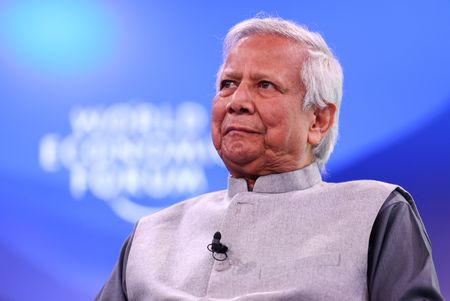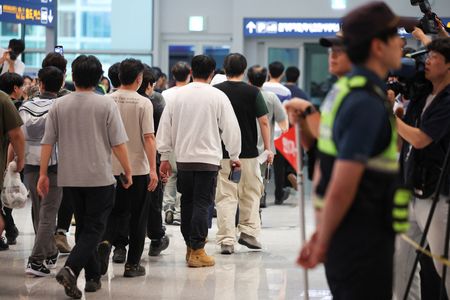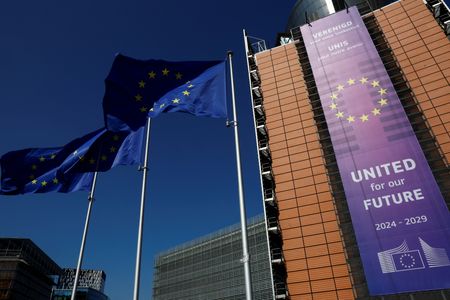By Ruma Paul
DHAKA (Reuters) -Chinese President Xi Jinping has told Bangladesh’s interim leader Muhammad Yunus that Beijing would consider requests to lower interest rates on Chinese loans to Dhaka, Yunus’ press chief said on Friday.
Yunus was in China on his first bilateral state visit since assuming office last year. He has yet to visit India, amid diplomatic tensions between the two neighbours.
Xi also reaffirmed China’s commitment to encouraging Chinese investment in Bangladesh and facilitating the relocation of Chinese manufacturing enterprises, Yunus’ Press Secretary Shafiqul Alam said in a Facebook post describing the talks as “comprehensive, fruitful, and constructive”.
“President Xi reiterated China’s support to the Chief Adviser and the Interim Government. It was Professor Yunus’ first bilateral foreign tour, and so far, it has been a grand success,” Alam said.
China is also considering enhanced cooperation in water resource management, a key issue raised by Bangladesh during the talks, he added.
Bangladesh has secured a commitment of $2.1 billion in Chinese investments, loans and grants, Yunus’ press wing said.
Nearly 30 Chinese companies pledged $1 billion for the Chinese Industrial Economic Zone after Yunus urged private investment in the Bangladeshi manufacturing sector.
China also plans to lend $400 million for modernization of Mongla port, $350 million for further development in China’s economic zone in Bangladesh, and $150 million in technical assistance, with the rest coming as grants and other lending.
The sides said in a joint press release they had underscored the importance of starting negotiations on a China-Bangladesh Free Trade Agreement soon, and officially starting negotiations on optimizing a China-Bangladesh Investment Agreement.
The press release also said Bangladesh supported the One-China policy, recognising Taiwan as part of Chinese territory.
The sides signed one agreement on economic and technical cooperation and eight memorandums, mostly on cultural exchanges.
“China is ready to work with Bangladesh to promote the high-quality building of the Belt and Road, explore cooperation in areas such as the digital economy, green economy, maritime economy, infrastructure construction and water conservancy, and enhance humanistic exchanges so as to promote people-to-people contact,” Chinese state news agency Xinhua quoted Xi as saying.
Yunus replaced Sheikh Hasina, India’s long-time ally, who was removed from power as prime minister in August following deadly protests. Hasina sought refuge in India, which has not responded to Bangladesh’s requests to extradite her for trial.
China has been strengthening its ties with Bangladesh and is its largest trading partner, with annual trade amounting to $25 billion. However, despite Beijing’s offer of zero-tariff market access for many Bangladeshi products, Bangladesh’s exports to China remain limited at just $1 billion.
Analysts say Bangladesh’s growing relationship with China and weakening ties with India could reshape South Asia’s geopolitical balance, and raise security concerns for India.
(Reporting by Ruma Paul, additional reporting by Liz Lee in BeijingEditing by Peter Graff)











